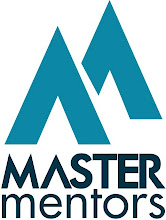Before we understand the term culture let us look at what
successful organisations are made of. Almost all management thinkers and
writers have agreed that the human beings in an organisation and theway they
intercat is the key aspect of culture and which more often than not is a Key
Success Factor.
In today’s world, if anything is in shortage it is Quality
manpower!!. This is especially true in large populations especially from
countries with diversity like India!!. Sounds contradictory, the more there are
people to recruit from, the tougher it is to choose the right kind!!.
Each employee brings 4 distinct characterstics to an
organisation – Knowledge, Skills, Attitude and Habit.
Knowledge – How to do things
Sills – How well to do things
Attitude – How the employee comes across to others while
carrying out his tasks
Habit- How he normally does things.
The first two are more easily available and highly
democratised with the advent of more schools, colleges and the internet. The
last two are the more difficult ones to get and are the key ingredients to
culture.
When the older companies were set up , the workforce – both
“labour” and “management” were from similar socio economic backgrounds . You
were slotted as manager or managed based on your education/knowledge and skills
alone and the attitude and habits were more similar than diverse. Hence culture
got built more easily in older companies in the yester years. It is more
difficult today.
Attitude and Habits differ based on the socio economic
backgrounds of people.
Habits are usually very difficult to break and a smart
organisation leverages on the habits of effective people to make it an
organisation habit and later on it becomes the culture of an organisation. A
great example can be seen in Asian Paints, one of the top 10 paint companies in
the world and it is totally Indian. It is Asian Paints culture to take detailed
notes in all meetings whether with dealers or otherwise. The action points are
clearly highlighted and the same is reviewed int he next meeting. This is a
habit and now is a part of the culture of the company. The culture is one of
being mindful of even the smallest detail and hence the company is just and
plain efficient and therefore dominant in its operations!!
Attitude is a more individualised trait and is even more
difficult to leverage on for creating a successful organisation. Asian Paints
recruits over 200 fresh graduates from top management and engineering schools
as trainees every year. To ensure that the individual’s attitude “gels” with
the overall company’s attitude without affecting his individuality, Asian
Paints had this great training program for a year whereby every trainee starts
off at the lowest level in the function he is assigned to. For example, a sales
management trainee starts off as a salesman in one territory where he is an
under study to the regular sales officer. He travels by the same conveyance and
eats the same food and stays at the same hotel as the sales officer. This as we
used to call it “grinds all inflated egos to the ground” and generates an
attitude to help others and understand the real “market”. Later on when the
trainee manages the sales teams, he knows their issues and problems and is able
tot take effective decisions without any “false” attitude. Anybody who does not
make the “cut” is clearly reassigned or eased out after the first round of
promotions. This has created a culture of friendliness, apolitical approach
that has made Asian Paints what it is today.

No comments:
Post a Comment